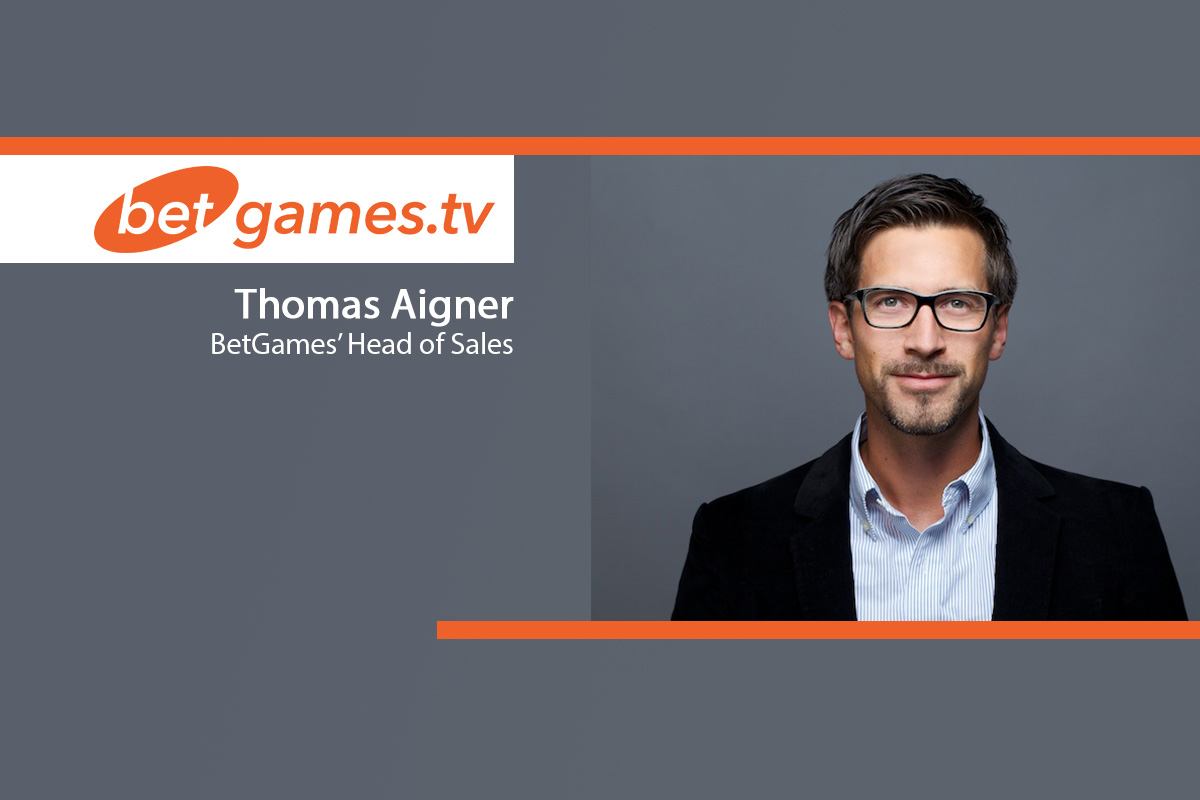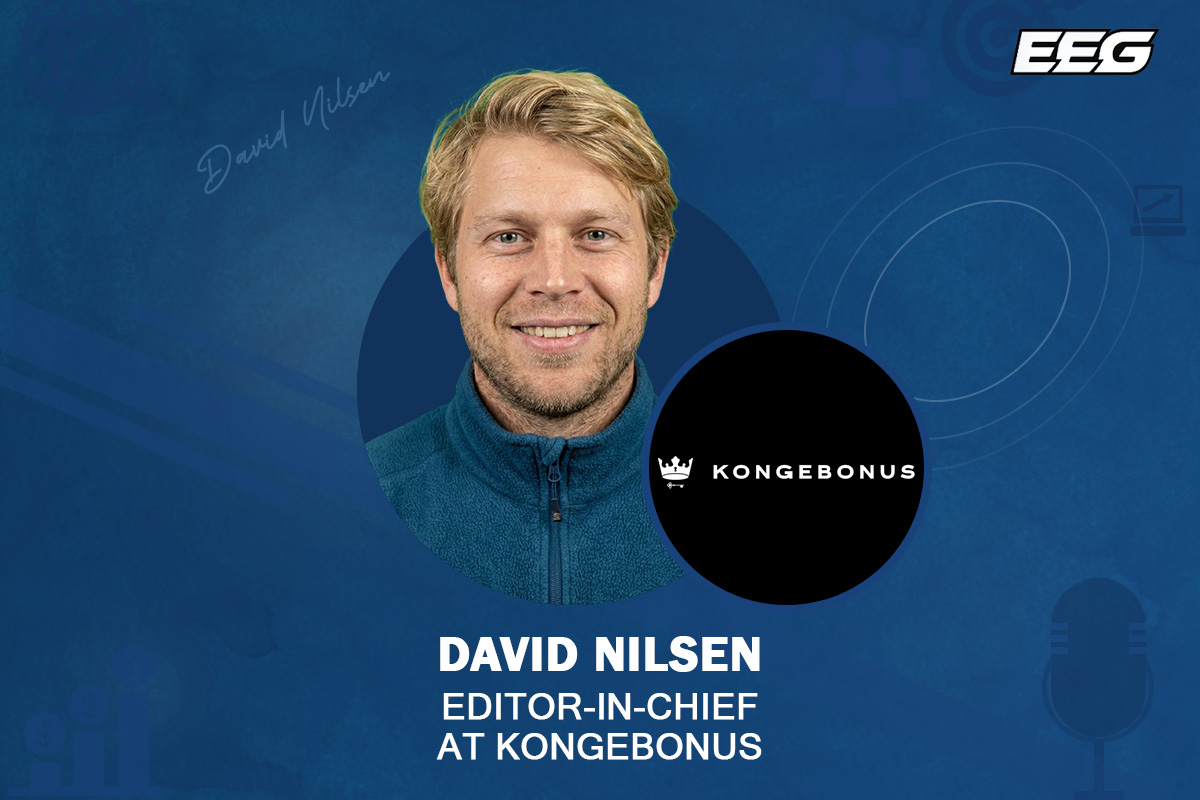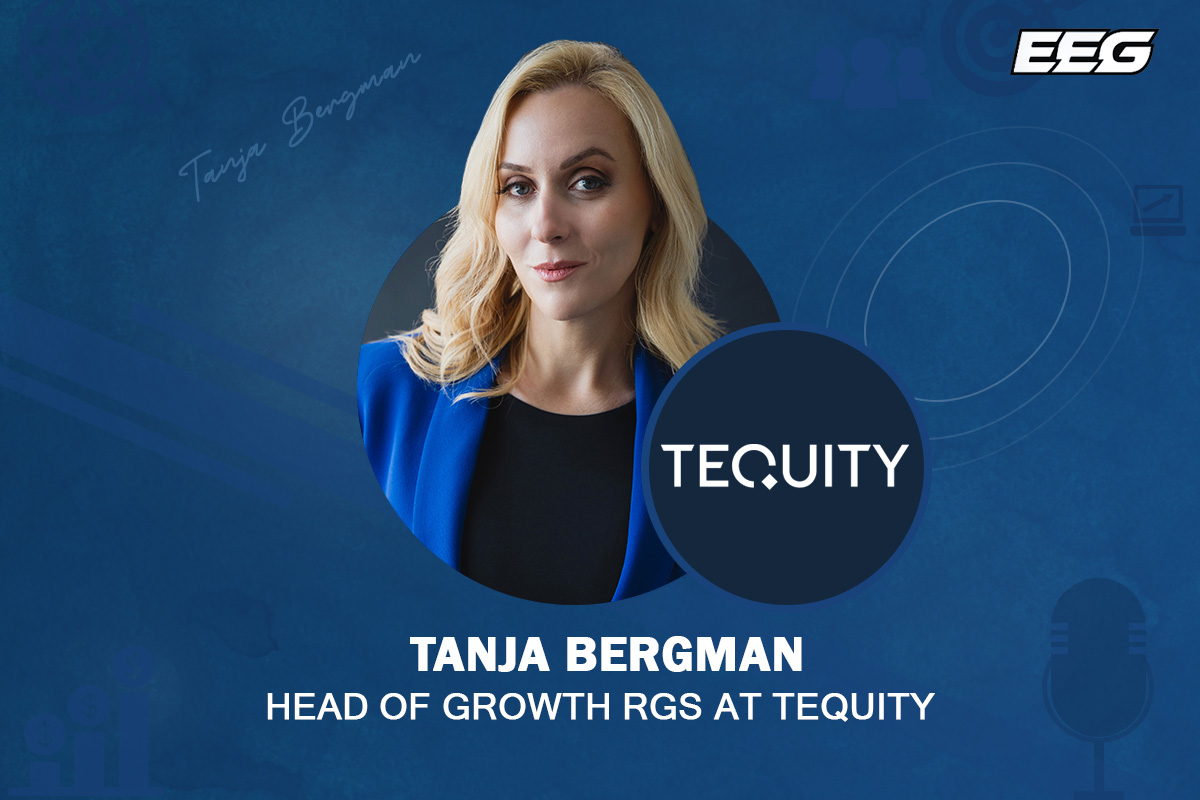Interviews
“BetGames is a great acquisition tool for new players” – Exclusive interview with BetGames.TV Head of Sales

Having proven itself as one of 2020’s standout industry performers, BetGames has not been one to rest on its laurels in the first six months of 2021, launching a host revamped games, as well as establishing its Malta hub with plans to take the company from 100 to 300 team members by the end of the year.
We caught up with BetGames’ Head of Sales, Thomas Aigner, to talk through the studio’s latest moves and plans for continued global expansion.
Looking back at the last six months for European markets, how can we assess performance and what we’ve seen as an industry?
There’s been two main stand-outs that we’ve witnessed: the increasing player preference for low-stakes entertainment and the popularity of live gaming generally as a remedy for quarantine. As lockdowns have continued in the first half of this year, our games have retained a wealth of players since we intrinsically attract a lower spend with far more regular play – as well a fixed-odds betting format that has ensured we’re a welcome home for sportsbook customers looking to try something new.
In light of what has been effectively an ongoing recession, we’ve also learned that the key to player engagement is a low-spend proposition without the risk of big losses, combined with simplicity in gameplay and the high-frequency in sessions. Given that the majority of players the world over have been observing social isolation, this makes perfect sense – with a strong preference for pick-up-and-play products that offer live entertainment for hours without emptying their wallet. The live experience has been a well-placed antidote to the seclusion that many have experienced over the last 12 months or so.
I think one of the biggest lessons learned has been that diversification is imperative. Pre-Covid, we’d expect operators to be focusing up to 70% of their spend on promoting sports and little else. Those who continued with that approach through 2020 and indeed, the first six months of this year, given the lack of retail environments in Europe, have really felt the pinch.
Moving forward, there needs to be far more focus on alternatives such as ours, as we’ve clearly learned that sports fans are unaccustomed to the majority of casino, or indeed the playing format available, even with Live Casino. It is essential that suppliers take onboard the lessons learned from betting activity, especially when it comes to providing the low-spend, extended sessions that have proven to work so well, and adapt accordingly.
When it comes to BetGames, what regions have been key in Europe so far? Where have you been focusing your energy?
Europe is an incredibly diverse continent when it comes to playing styles, and the BetGames customer certainly varies between markets. On the whole, we attract sports bettors, which is particularly the case in Eastern Europe, where we know that 70-80% of our returning customers are sports fans – and this is one way we really differentiate ourselves as a supplier against our competitors.
For mature markets, such as Scandinavia and the UK, products such as Bet on Poker have performed particularly well, as they offer a playing format that resonates very strongly with players, delivering a winning combination of both poker, which is a continental favourite, alongside the fixed-odds betting format we are famous for.
Looking to new entrances, expansion in Greece, Sweden, Switzerland, Finland, Ukraine and Georgia are top of the agenda for us, with this summer’s sporting calendar likely to give a welcome boost for all. Having said that, we’re aware that is hard to bring in new game types that can resonate with established players – this requires significant time and resources. We’ve revamped our commercial department accordingly to handle both expansion and our existing partners, which means we have close to triple the resources from last year to have the helping hands in place to support the day-to-day.
As has been evident from many of our recently agreed partnerships, We’re set to work together on pushing and promoting our products with the operator group, dedicating a separate category for our games. This kind of approach will be particularly effective as we differ from traditional Live Dealer and Live Casino Games – which means our target demographic is different. This means that together we can focus on particular player segments that we can engage and retain.
Tell us about the launch of your Malta Hub – that’s certainly big news for BetGames – that must be big news for your recruitment plans?
To keep pace with our rapid recent growth, we realised that we had to expand our capacity and we’re planning to greatly increase our headcount. Opening the Malta office was a logical step in that roadmap, not only to cater for the extra bodies but also to position ourselves closer to the heart of the igaming industry.
Looking at the numbers, we have incredibly ambitious plans to increase our 200-strong team by more than 50%, with our Malta hub ready to provide a platform for attracting the best of the industry’s talent. It will also be a hugely convenient place to meet our clients and friends, and while we understand the way that businesses and people have evolved in the last 12 months, we recognise the need to have that base where our colleagues can be inspired and productive – offering a home, a meeting place, and a space where we can collaborate and innovate.
The long-term strategy we’re currently on course with is set to change our operations as we know them. By planting our flag in Malta, I see it as an excellent chance to transform the company to a new level of growth that will help us to increase in size and revolutionise the way we deliver service to our partners.
When looking at Europe – how would summarise the changing trends of player demand? What products do you plan to offer accordingly?
Increased regulation in Europe is also going to have plenty of influence on shaping player demand over the year ahead. In my view, the key to success if going to be offering regulation-friendly, low-stakes, simple and easy extended entertainment that can keep players engaged without emptying their wallet.
Economic circumstances (as well as lockdowns) demand this – and players want an easily accessible experience that can be enjoyed in a low-spend format. This is especially going to be the case this summer – and our approach is to always offer complementary products that can boost engagement and sportsbook spend, rather than drain it.
BetGames is a great acquisition tool for new players – while also broadening the target group for live content because of the simplicity and availability of content, odds and betslip format, attracting sports bettors. Accordingly, our partners need content that can fit in seamlessly alongside a sports betting offering, and we’ve specifically designed our catalogue to work in this way. Sports betting margins will always be inherently higher for operators as they don’t carry the cost of using a third-party, making us one of the few suppliers globally that can truly offer a partnership that can boost both sides of the coin.
Last but not least – where are the key markets in Europe for growth our readers should be watching over the next 12 months? Where has BetGames got its eye on?
We’ve got our eye firmly fixed on Greece at the moment, as already mentioned, but looking further afield, Sweden, Switzerland, Finland, Brazil, Ukraine and Georgia are other territories that we see plenty of potential in, as I’m sure most of our fellow European suppliers and operators see too.
In evaluating where’s best for us, there’s a host of regulated markets available and we’ve got to make sure that we’re entering the regions best suited to us and our portfolio. We’ve significantly changed our assessment criteria to make it a far more comprehensive process to apply due diligence. This means that we’ve now got our own taskforce dedicated to performing key market analysis with a criteria that encompasses both qualitative and quantitative data. This now totals 14 different key factors that we analyse to work out where our products will work best – and we’re very excited for the bringing our unique catalogue to more players than ever before!
Powered by WPeMatico
AI
Why operators are choosing to buy in their AI strategy

In an industry where margins are thin and player loyalty is fleeting, customer experience has become a key differentiator for operators. As AI becomes a core operational requirement, leadership teams face a clear choice: build proprietary technology in house, or partner with purpose built AI CX providers.
Alex Gould, CTO at Conduet, explains why more operators are choosing the latter.
What industry-specific CX challenges can an exterior solution address ‘out of the box’ compared to a generic build?
Generic AI struggles in sports betting and iGaming because player inquiries are shaped by complex, domain-specific rules and edge cases. Questions about settlements, promotions, withdrawals, or cash outs are rarely straightforward. They depend on wager structure, timing, eligibility criteria, and operator-specific logic.
Over 80% of player inquiries require pulling live, account-specific information from the PAM and applying it correctly within that broader rule set. Without purpose-built logic to interpret both the data and the edge cases around it, responses quickly become incomplete or incorrect.
This limitation is reflected more broadly in enterprise AI adoption. Research from MIT found that 95% of enterprise AI initiatives fail to deliver measurable business impact, often because broadly trained models are pushed into live environments without the domain context needed to handle real-world variability. What appears to work in controlled testing breaks down once exposed to operational complexity.
Purpose-built platforms are designed around this reality. By training on gaming-specific data, workflows, and failure modes, they can interpret live PAM data in context and handle both common and complex inquiries accurately from day one, without relying on extensive rules, manual escalation, or post-deployment patchwork.
How would you characterise the current skills gap within operator teams regarding AI implementation?
Operator CX teams are closest to the customer and understand where friction exists. The challenge is not identifying opportunities, but delivering AI that performs reliably in production. Turning insight into production-ready capability requires technical depth, dedicated ownership, and sustained iteration that sit outside the remit of most CX organisations.
Deploying AI in gaming requires expertise across model evaluation, conversation design, failure handling, and real-time interaction with PAMs and ticketing systems. It also requires ongoing investment to monitor performance, manage edge cases, and improve outcomes as volumes and player behaviour change. CX teams are structured to run day-to-day operations, which makes sustaining this work in parallel difficult.
As a result, many internal AI CX efforts stall or remain narrow in scope, not because the opportunity is unclear, but because the execution burden is too high.
What is the average time to market using a specialist platform, versus a full in-house build?
In-house AI efforts typically take 18 to 36 months to reach enterprise-ready scale. The delay is driven by the need to coordinate across CX, product, data, and engineering while establishing new ownership and operating models inside live CX environments.
A specialist platform compresses this timeline materially. With gameLM, operators can move from concept to live inbound CX in six to 12 weeks. Operators achieve 60%+ resolution within 90 days, scaling toward 80%+ shortly thereafter.
Why does a purpose built partnership model matter in iGaming & OSB CX?
In iGaming and online sports betting, the challenge is not adopting AI, but making it work reliably at scale. Generic platforms often shift the burden onto operators after deployment, requiring significant time and internal effort to adapt the technology to gaming-specific realities. That effort compounds as complexity grows.
A purpose built partnership model changes that dynamic. Instead of operators spending months closing gaps, AI is deployed using operating patterns already proven in live gaming CX. Common failure modes, escalation paths, and performance tradeoffs are understood upfront, reducing the need for downstream rework and ongoing firefighting.
Conduet applies this approach through gameLM, informed by operating a 500+ agent gaming CX organisation. That operating knowledge functions as an embedded R&D capability, shaping how the platform is tuned, prioritised, and extended alongside each operator’s environment. Inbound CX performance today directly informs the development of additional, gaming-specific capabilities such as reactivation, payments optimisation, and fraud prevention.
The result is a partnership model that delivers strong outcomes without transferring the hidden cost of adaptation and maintenance back to the operator, allowing CX capability to keep pace as the industry evolves.
Alex Gould is the CTO at Conduet, where he leverages his technical and strategic background to guide technology strategy and innovation. He is also the Founder and CTO of Everyday AI and previously founded computer vision company ViewX. Alex’s earlier experience includes roles at Primary Venture Partners and Bain & Company, and he holds an MBA from Columbia Business School and a Bachelor of Engineering (Hons) from the University of Canterbury.
The post Why operators are choosing to buy in their AI strategy appeared first on Eastern European Gaming | Global iGaming & Tech Intelligence Hub.
Interviews
Inside the Kongebonus Awards: What Norway’s Players Are Telling the iGaming Industry

As the only iGaming awards originating from Norway, the Kongebonus Awards are decided entirely by open player voting, offering a rare, unfiltered view into what truly resonates with a dedicated gaming community. Kongebonus Editor-in-Chief, David Nilsen, explains how this year’s results reflect shifting player expectations, highlight both emerging and established studios, and contribute to wider industry conversations around quality, innovation and long-term engagement.
The Kongebonus Awards are now in their fourth year. How have you seen them evolve since the first edition?
Since the first edition, the Kongebonus Awards have grown both in reach and in significance. What started as a way to highlight standout games for our Norwegian audience has developed into a recognised annual moment where player sentiment is clearly reflected back to the industry. Each year we see greater engagement from the community and more awareness among studios and suppliers about what the awards represent. The structure has also matured, with categories that better capture the diversity of modern game development. Most importantly, the awards have become a consistent reference point for which games and providers have truly connected with players over the past year, giving the results increasing weight within the wider iGaming conversation.
This year’s awards were presented in connection with ICE Barcelona. How important is it to connect a Norwegian, player-driven initiative with the wider international industry?
Connecting the awards to an international event like ICE Barcelona helps bring local player insight into the global industry spotlight. While the voting comes from Norwegian players, the studios and games involved operate across many markets. Presenting the results in that setting underlines that player preferences in Norway are part of wider trends in iGaming. It also allows international stakeholders to see how a Nordic audience responds to different styles of games, mechanics and themes. That perspective can be valuable for product planning and market strategy.
This year’s winners were decided through open public voting. Why is it important that the results reflect the voice of players so directly?
Having the winners decided through open public voting ensures the results are grounded in real player experience. The recognition comes directly from the people who have spent time with the games, formed opinions and chosen their favourites. That gives the awards a strong sense of authenticity. It moves the focus away from internal industry perspectives and places it firmly with the end users. For studios, this kind of recognition signals that their work has genuinely resonated with players, not just performed well commercially. Player-led results offer a clear and transparent indicator of which games and providers have built lasting appeal, and that makes the outcomes especially meaningful within the industry.
The awards focus not only on commercial performance, but also on quality, innovation and player experience. From this year’s winners, what stood out most to you?
What stood out most was the balance between creativity and accessibility. Players clearly reward innovation, but only when it is paired with strong execution and an enjoyable overall experience. Many of the recognised titles combine distinctive mechanics with clear game identity and smooth gameplay. There is also evidence that consistency matters. Studios that repeatedly deliver engaging, reliable experiences tend to build strong followings, and that loyalty is reflected in the voting.
How do categories such as Rising Star Game Developer and the Readers’ Hall of Fame help ensure the awards spotlight both emerging studios and more established names?
These categories make sure the awards reflect the full spectrum of achievement in the industry. The Rising Star category gives visibility to newer studios that are already making a strong impression with players through innovation and creativity, even if they do not yet have the scale of the largest providers. In contrast, the Readers’ Hall of Fame recognises games that have achieved lasting popularity and become long-term favourites. Including both perspectives shows that excellence is not limited to one stage of growth. It highlights that players value both fresh ideas and proven experiences.
Looking ahead, how do you expect the awards to continue growing, and what role do you see Kongebonus playing in shaping player-led conversations in the industry?
As player expectations continue to change, the awards will develop alongside them. The aim remains to document and highlight the studios and games that genuinely stand out from a player perspective. Over time, this may mean refining categories or exploring new ways to reflect emerging trends, while keeping open voting at the core. Kongebonus will continue to act as a bridge between players and the industry, translating community sentiment into insights that studios and suppliers can learn from. By keeping the focus on player experience and feedback, the awards can play a growing role in encouraging the industry to prioritise quality, innovation and long-term player engagement.
To find out more about this year’s Kongebonus Awards and see the full list of winners, visit: https://www.kongebonus.com/nyheter/vinnere-av-kongebonus-awards-2025/
The post Inside the Kongebonus Awards: What Norway’s Players Are Telling the iGaming Industry appeared first on Eastern European Gaming | Global iGaming & Tech Intelligence Hub.
Interviews
Scaling innovation through the launch of Tequity Publishing

Following the announcement of its new publishing vertical and the successful debut of Royal Drop, we sat down with Tanja Bergman, Head of Growth RGS at Tequity, to discuss how this new arm is set to dismantle technical barriers for ambitious studios and why scalability is the new frontier for the ‘Burst Games’ genre.
Tequity has just officially launched its Publishing vertical. What was the primary catalyst behind this move?
The industry is currently in a fascinating place. There is no shortage of creative talent among studios, but there is a massive technical bottleneck. We have seen so many ambitious studios with incredible concepts – especially those moving beyond traditional slots – who have been getting bogged down in terms of getting those concepts out into the marketplace.
The catalyst for Tequity Publishing was simple. We wanted to break down those technical barriers. By handling the infrastructure, distribution, and compliance frameworks, we allow studios to do what they do best, which is build outstanding games. It’s about speed-to-market without compromising on the quality or the vision of their content.
The launch coincides with the release of Royal Drop. How does this game, and the partnership with Mirror Image Gaming and The Fortune Engine, showcase what Tequity Publishing is all about?
Royal Drop is the perfect proof of concept. It’s a collaboration that highlights three important pillars of modern game delivery. You have Mirror Image Gaming bringing that fresh, video-game-influenced Burst Games energy, The Fortune Engine provide the math tools and templates, and Tequity Publishing offers the global scale and distribution pathway.

It shows that when you remove operational friction, you can create a game-first experience that appeals to a new generation of players who want something more interactive than a standard 5×3 reel.
Tequity Publishing offers two models: RGSaaS and RGS-to-RGS. Can you walk us through the strategic benefits of each?
Flexibility is key, because no two studios are at the same stage of their journey. The RGSaaS model is our full-service offering. It’s designed for studios that want to focus 100% on the creative side. We provide the entire infrastructure and publishing framework and it is essentially a business-in-a-box for game creators.
The RGS-to-RGS model is a more streamlined, tech-first approach for studios that already have their own RGS but lack the distribution muscle. It allows them to plug into our growing operator and aggregator network instantly. Both models are built on the same philosophy: helping studios reach parts of the market they otherwise couldn’t access on their own.
You mentioned reaching new generations of players. How does this vertical specifically empower studios to innovate in ways they couldn’t before?
When a studio is concerned about how they are going to integrate with a multitude of different operators or how to navigate complex jurisdictional requirements, they tend to play it safe. They stick to what they know.
By taking that weight off their shoulders, we give them the opportunity to be brave. Studios like Mirror Image Gaming are pushing the boundaries of modern iGaming, taking influences from the video game world. This is exactly what the new generation of players is looking for. We provide the scalability so that these niche, innovative ideas can achieve mass-market impact.
It’s been a busy period for Tequity, following the success of your Originals series and the iBankroll partnership. How does the Publishing vertical fit into the broader Tequity roadmap for 2026?
It’s all part of becoming the ultimate technology partner for the gaming industry. Whether it’s our streamer-friendly Originals or our Bankroll-as-a-Service offering, the goal is to provide scalable, customisable solutions. Tequity Publishing is the natural evolution of that mission. We aren’t only providing the tools anymore, but also the pathway to the player. Looking ahead, you can expect a series of further launches through our three-way collaborations. We’re proving that the barrier to entry for innovation has never been lower.
Finally, for studios looking to scale quickly, what is your main message to them?
Don’t let technical noise drown out your creative signal. If you have a game concept that breaks the mould, you shouldn’t have to spend years building the distribution architecture to get it seen. That’s what we’re here for. We want to help you launch at a speed and scale that matches your ambition, so that you can make a significant splash in the industry.
The post Scaling innovation through the launch of Tequity Publishing appeared first on Eastern European Gaming | Global iGaming & Tech Intelligence Hub.
-

 ACMA7 days ago
ACMA7 days agoACMA Blocks More Illegal Online Gambling Websites
-

 CEO of GGBET UA Serhii Mishchenko7 days ago
CEO of GGBET UA Serhii Mishchenko7 days agoGGBET UA kicks off the “Keep it GG” promotional campaign
-

 Aurimas Šilys7 days ago
Aurimas Šilys7 days agoREEVO Partners with Betsson Lithuania
-

 Canada6 days ago
Canada6 days agoRivalry Corp. Announces Significant Reduction in Operations and Evaluation of Strategic Alternatives
-

 Latest News6 days ago
Latest News6 days agoTRUEiGTECH Unveils Enterprise-Grade Prediction Market Platform for Operators
-

 Central Europe7 days ago
Central Europe7 days agoNOVOMATIC Once Again Recognised as an “Austrian Leading Company”
-

 Acquisitions/Merger6 days ago
Acquisitions/Merger6 days agoBoonuspart Acquires Kasiino-boonus to Strengthen its Position in the Estonian iGaming Market
-

 Firecracker Frenzy™ Money Toad™6 days ago
Firecracker Frenzy™ Money Toad™6 days agoAncient fortune explodes to life in Greentube’s Firecracker Frenzy™: Money Toad™



















